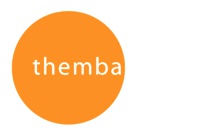Our Philosophy
After many years of aid and billions of dollars invested, very little has changed for the poor. Millions of people still do not have clean water to drink, live in degrading environments and go to bed hungry. To make poverty history and bring about a more equitable world, our approach to development needs rethinking. We need to replace a system where agendas are typically set by development professionals in the north and imposed on the disenfranchised poor in the south.
In our experience, projects fail for human rather than technical reasons. The poor are often unaware of possible solutions to their problems, or lack the necessary knowledge and expertise, or are disenfranchised from decision making process that would enable them to change their lives. The secret for true development lies in the realisation of human capabilities. Rather than focusing on single issues or promoting particular technologies, Themba aims to provide the training, expertise and the resources required to enable local people to create their own solutions. In so doing, Themba will assist local stakeholders in alleviating the local causes of poverty.
Themba recognises that neither a top down nor a bottom up approach to development works. Top down does not address the needs of the local community, while disempowered local communities often do not know which questions to ask. There are no development panaceas, only long term processes of mutual commitment. We can only achieve lasting solutions to poverty through a process of constructive dialogue; listening, discussion and discernment as the project develops.
Furthermore, real development depends upon quality education. We need to view education in a different light, not as a rote learning process but rather as the development of conceptual thinkers so that the students and facilitators of the learning can grow independently.
We believe that to achieve a more equitable world fundamental changes are needed in our approach to development: genuine partnerships, not lip service, access to basic necessities as a right and real opportunities for income generation and fair trade. Themba means trust in Zulu and this represents the mutual trust required by all the stakeholders in the development process. THEMBA also stands for change. THEre Must Be an Alternative.


